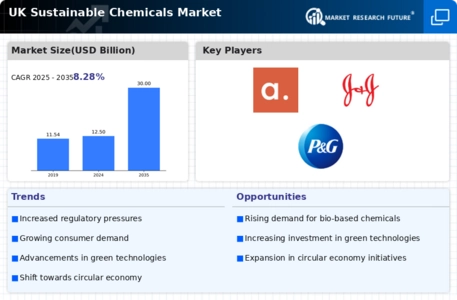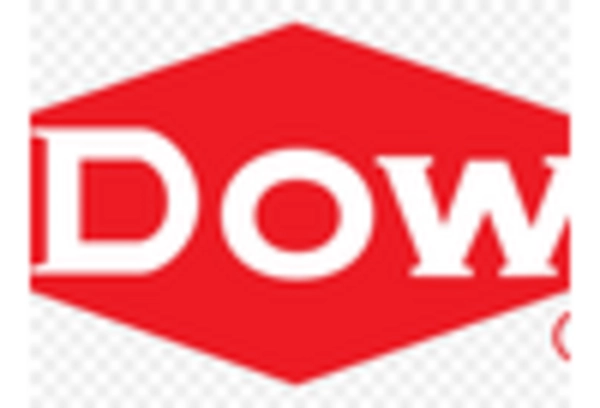Market Analysis
In-depth Analysis of UK Sustainable Chemicals Market Industry Landscape
The UK sustainable chemicals industry has had significant changes in the market trends for sustainability within the chemical industry. Companies are embracing greener alternatives because of shifting consumer preferences as well as regulatory frameworks that have become friendlier to such options. The strict regulations on carbon emission reduction and government commitment to sustainable development led to these policies and laws that encourage environmentally friendly practices within the chemical industry. As such, companies operating within this sector must ensure that they take into account these regulatory directives when formulating their strategies so as to foster a culture of business sustainability. This has resulted in firms adopting more sustainable practices in the sector. There is another factor that determines how markets behave, and that is called consumer demand. Most consumers today prefer products coming from manufacturing plants with fewer carbon footprints or those that were made through responsible environmental ways of production. Such a transformation in consumer behavior has forced manufacturers of chemicals to change their product processes into greener ones that, while satisfying customer requirements, also meet the changing preferences of customers. Collaborative initiatives and partnerships also play a crucial role in shaping the dynamics of the UK sustainable chemicals market. Given the complexity surrounding sustainability challenges, many organizations are entering into alliances where they share information, resources, and expertise among themselves. Collaboration helps find innovative solutions and facilitate entry. This cooperative approach has the potential to speed up the adoption of sustainable practices across industries, thus providing an integral, holistic transformation of the chemical sector. The technological advances also drive the market dynamics. Sustainable chemicals can benefit from new production technologies that are more efficient and sustainable, driving overall sector growth. Bio-based feedstock advancements, process optimization, waste reduction technology, and development have played significant roles in the economic viability enhancement of the sector and the diminution of environmental pollution, respectively. Current investment trends are budgeted for the possibility of future growth and expansion opportunities. This has led to investors' allocating their capital to firms that commit to sustainable practices as part of their business strategies since sustainability is now becoming an integral component of business strategies. With this inflow, the UK sustainable chemicals sector has been able to increase its investments in research and development activities, which makes it possible for them to scale up operations as well as adopt more eco-friendly approaches.


















Leave a Comment